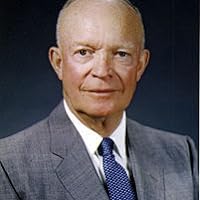Scapegoating Quotes
Quotes tagged as "scapegoating"
Showing 1-30 of 46

“I find something repulsive about the idea of vicarious redemption. I would not throw my numberless sins onto a scapegoat and expect them to pass from me; we rightly sneer at the barbaric societies that practice this unpleasantness in its literal form. There's no moral value in the vicarious gesture anyway. As Thomas Paine pointed out, you may if you wish take on a another man's debt, or even to take his place in prison. That would be self-sacrificing. But you may not assume his actual crimes as if they were your own; for one thing you did not commit them and might have died rather than do so; for another this impossible action would rob him of individual responsibility. So the whole apparatus of absolution and forgiveness strikes me as positively immoral, while the concept of revealed truth degrades the concept of free intelligence by purportedly relieving us of the hard task of working out the ethical principles for ourselves.”
― Letters to a Young Contrarian
― Letters to a Young Contrarian

“If brainstorming becomes 'blamestorming' by reason of time pressure or on account of pure laziness, the truth may be assaulted and unyieldingly vilified . Blamestorming becomes then downright a perfidious appeal to scapegoating with a torrent of frantic manhunts for 'culprits on duty'. ('Blamestorming')”
―
―

“Scapegoating worked in practice while it still had religious powers behind it. You loaded the sins of the city on to the goat’s back and drove it out, and the city was cleansed. It worked because everyone knew how to read the ritual, including the gods. Then the gods died, and all of a sudden you had to cleanse the city without divine help. Real actions were demanded instead of symbolism. The censor was born, in the Roman sense. Watchfulness became the watchword: the watchfulness of all over all. Purgation was replaced by the purge.”
― Disgrace
― Disgrace

“As she grew older, Maddy discovered that she had disappointed almost everyone. An awkward girl with a sullen mouth, a curtain of hair, and a tendency to slouch, she had neither Mae's sweet nature nor sweet face. Her eyes were rather beautiful, but few people ever noticed this, and it was widely believed Maddy was ugly, a troublemaker, too clever for her own good, too stubborn - or too slack - to change.
Of course, folk agreed that it was not her fault she was so brown or her sister so pretty, but a smile costs nothing, as the saying goes, and if only the girl had made an effort once in a while, or even showed a little gratitude for all the help and free advice, then maybe she would have settled down.”
― Runemarks
Of course, folk agreed that it was not her fault she was so brown or her sister so pretty, but a smile costs nothing, as the saying goes, and if only the girl had made an effort once in a while, or even showed a little gratitude for all the help and free advice, then maybe she would have settled down.”
― Runemarks

“It is convenient for the old men to blame Eve. To insist we are damned because a country girl talked to the snake one afternoon long ago. Children must starve in Somalia for that, and old women be abandoned in our greatest cities. It’s why we will finally be thrown into the lakes of molten lead. Because she was confused by happiness that first time anyone said she was beautiful. Nevertheless, she must be the issue, so people won’t notice that rocks and galaxies, mathematics and rust are also created in His image.”
― Collected Poems
― Collected Poems
“A group of Nazis surrounded an elderly Berlin Jew and demanded of him, ‘Tell us, Jew, who caused the war?’
The little Jew was no fool. ‘The Jews,’ he said, then added, ‘and the bicycle riders.’
The Nazis were puzzled. ‘Why the bicycle riders?’
‘Why the Jews?’ answered the little old man.”
― A Treasury of Jewish Folklore
The little Jew was no fool. ‘The Jews,’ he said, then added, ‘and the bicycle riders.’
The Nazis were puzzled. ‘Why the bicycle riders?’
‘Why the Jews?’ answered the little old man.”
― A Treasury of Jewish Folklore

“It's easy to blame traffic jam
when you're late and in a hurry.”
― My Ancestor Was an Ancient Astronaut
when you're late and in a hurry.”
― My Ancestor Was an Ancient Astronaut

“I was in denial of the glaring reality that my existence depended on my willingness to comply with the family policy of me earning the splinter of space they granted to me.”
― Narcissistic Family Dynamics: Collected Essays
― Narcissistic Family Dynamics: Collected Essays
“And what is an authentic madman? It is a man who preferred to become mad, in the socially accepted sense of the word, rather than forfeit a certain superior idea of human honor. So society has strangled in its asylums all those it wanted to get rid of or protect itself from, because they refused to become its accomplices in certain great nastinesses. For a madman is also a man whom society did not want to hear and whom it wanted to prevent from uttering certain intolerable truths.”
―
―

“[Scapegoating] blames societal ills on the groups with the least power and the least say in how the country operates while allowing the larger framework and those who control and reap the dividends of these divisions to go unchecked.”
― Caste: The Origins of Our Discontents
― Caste: The Origins of Our Discontents

“In a culture where the brain is considered the center of consciousness, an unraveling brain is an unraveling self. To let the mentally unstable live in our midst is to face the fearful fragility of the ego. So we whisper our fears over their heads, driving them into the wilderness of the streets or locking them away where they can’t be seen. We let them pale into husks of
human beings, cut off from the mutual blood of society. Sometimes we toss them a coin; it’s a small price to pay for the relief of looking away.”
― The Sea Once Swallowed Me: A Memoir of Love, Solitude, and the Limits of Language
human beings, cut off from the mutual blood of society. Sometimes we toss them a coin; it’s a small price to pay for the relief of looking away.”
― The Sea Once Swallowed Me: A Memoir of Love, Solitude, and the Limits of Language

“At some point in the life of every scapegoat, the clock will strike the midnight hour, the masks will come off, and the aggression of family will reveal itself.”
― Narcissistic Family Dynamics: Collected Essays
― Narcissistic Family Dynamics: Collected Essays
“Nobody goes no contact with a loving, caring, gentle, safe family. They end toxic relationships because all the other alternatives were exhausted and unsuccessful. They broke connections to abusive people because it was their last resort.”
― Toxic Siblings: A Survival Guide to Rise Above Sibling Abuse & Heal Trauma
― Toxic Siblings: A Survival Guide to Rise Above Sibling Abuse & Heal Trauma

“Children who are scapegoated in families are in reality victims of abuse and neglect – Yet this is rarely recognized by those working in our Mental Health systems, Family Courts, or Educational systems. Because scapegoating processes can be subtle, many scapegoated adult survivors fail to realize that they have suffered from psycho-emotional abuse growing up, and even their therapist or counselor might miss the signs and symptoms associated with being in this most devastating dysfunctional family role.”
― Rejected, Shamed, and Blamed: Understanding Family Scapegoating Abuse
― Rejected, Shamed, and Blamed: Understanding Family Scapegoating Abuse

“I carried the image of 'The Scapegoat' with me and that ethereal moment when it seemed as if I had entered the bleak scenery stayed etched in the back of my mind for reasons I could not yet comprehend.”
― Narcissistic Family Dynamics: Collected Essays
― Narcissistic Family Dynamics: Collected Essays

“Life was simple and stable. That was my mantra of self-deception. It was how I stayed in denial of the complexity and dysfunction that had engulfed me.”
― Narcissistic Family Dynamics: Collected Essays
― Narcissistic Family Dynamics: Collected Essays

“We often assume the religious are superstitious, but maybe they are performance artists instead, embodying ideas which wander namelessly—dangerously—through the psyche.”
― The Sea Once Swallowed Me: A Memoir of Love, Solitude, and the Limits of Language
― The Sea Once Swallowed Me: A Memoir of Love, Solitude, and the Limits of Language

“Because the second wave was so much more severe than the first, a lot of people refused to believe it could be the same disease. It had to be terrorism. They didn't care what medical experts kept telling them, about how it was the nature of influenza to occur in waves and that there was nothing about this pandemic, terrible though it was, that wasn't happening more or less as had long been predicted.
No, not bioterrorism, others said, but a virus that had escaped from a laboratory. These were the same people who believed that both Lyme disease and West Nile virus were caused by germs that had escaped many years ago from a government lab off the coast of Long Island. They scoffed at the assertion that it was impossible to say for sure where the flu had begun because cases had appeared in several different countries at exactly the same time. Cover-up! Everyone knew the government was involved in the development of bioweapons. And although the Americans were not the only ones who were working on such weapons, the belief that they were somehow to blame--that the monster germ had most likely been created in an American lab, for American military purposes--would outlive the pandemic itself.
In any case, according to a poll, eighty-two percent of Americans believed the government knew more about the flu than it was saying. And the number of people who declared themselves dead set against any vaccine the government came up with was steadily growing.”
― Salvation City
No, not bioterrorism, others said, but a virus that had escaped from a laboratory. These were the same people who believed that both Lyme disease and West Nile virus were caused by germs that had escaped many years ago from a government lab off the coast of Long Island. They scoffed at the assertion that it was impossible to say for sure where the flu had begun because cases had appeared in several different countries at exactly the same time. Cover-up! Everyone knew the government was involved in the development of bioweapons. And although the Americans were not the only ones who were working on such weapons, the belief that they were somehow to blame--that the monster germ had most likely been created in an American lab, for American military purposes--would outlive the pandemic itself.
In any case, according to a poll, eighty-two percent of Americans believed the government knew more about the flu than it was saying. And the number of people who declared themselves dead set against any vaccine the government came up with was steadily growing.”
― Salvation City
“In 2018, I publicly disclosed that I had experienced psychological abuse by my sisters. Prior to uploading my first YouTube video on this sensitive topic, I had no idea if anyone else would relate. Shortly after my video went live, I received hundreds of comments by strangers who shared similar stories of being bullied, manipulated, gaslit, and abused by their own siblings. Five years later, my videos now have over 163,234K views and thousands of comments.”
― Toxic Siblings: A Survival Guide to Rise Above Sibling Abuse & Heal Trauma
― Toxic Siblings: A Survival Guide to Rise Above Sibling Abuse & Heal Trauma
“Baiting is the narcissist and flying monkeys deliberate act to provoke emotional reactions from you. It's to confirm their superiority and power over you. The destruction they inflict onto you may baffle you. Baiting could take any form. It's essentially them doing something vile to evoke a negative response from you.”
― Toxic Siblings: A Survival Guide to Rise Above Sibling Abuse & Heal Trauma
― Toxic Siblings: A Survival Guide to Rise Above Sibling Abuse & Heal Trauma

“It was not until I did my family genogram as part of my Masters in Counseling Psychology training that I learned of some of the devastating, traumatic events that had impacted my family-of-origin. Many genograms my clients have done as part of their family systems exploration reveal sudden, unexpected deaths (including suicides); illness; stillbirths; divorce; abandonment; 'missing' relatives'; and profound financial setbacks and losses.”
― Rejected, Shamed, and Blamed: Understanding Family Scapegoating Abuse
― Rejected, Shamed, and Blamed: Understanding Family Scapegoating Abuse

“But you don't have to my word for it that Russia and Putin are being unfairly scapegoated. Even Nadezhda Tolokonnikova- the founder of the Russian punk group Pussy Riot, whose members were imprisoned in Russia in response to their anti-government protest at an Orthodox Church- recently expressed such an opinion. As Tolokonnikova explained in an interview with David Sirota in the International Business Times, "I'm not terrified of him {Putin} at all. I don't think you have to be terrified of him. He's just a guy who claims that he has power, but I claim to have power too and you have power....If you talk here about mainstream liberal media in America, which speak a lot about Putin, I think it's just a trick....They don't really want to talk about internal American problems....They're just looking for a scapegoat and, you know, for Trump it's Muslims and Mexican workers. And for liberal media in America it is Putin.”
― The Plot to Scapegoat Russia: How the CIA and the Deep State Have Conspired to Vilify Russia
― The Plot to Scapegoat Russia: How the CIA and the Deep State Have Conspired to Vilify Russia
“Those who experience persistent feelings of indignation, which they view as righteous, tend to shield themselves from personal responsibility for their actions. They hold a pre-identified scapegoat responsible for all of their pain, traumas, and hurts; that scapegoat is ultimately accountable for their misdeeds.”
― Cynical Therapies: Perspectives on the Antitherapeutic Nature of Critical Social Justice
― Cynical Therapies: Perspectives on the Antitherapeutic Nature of Critical Social Justice

“As individuals, we have enormous power in the ways we abandon the scapegoated, or instead stand up for them. We have power to
change the ways we encourage shunning and instead do the work to facilitate communication. Simple shifts in personal behavior and their expressions in political structures of power, produce changing public norms which can make huge differences in individual and collective experiences.”
― Conflict Is Not Abuse: Overstating Harm, Community Responsibility, and the Duty of Repair
change the ways we encourage shunning and instead do the work to facilitate communication. Simple shifts in personal behavior and their expressions in political structures of power, produce changing public norms which can make huge differences in individual and collective experiences.”
― Conflict Is Not Abuse: Overstating Harm, Community Responsibility, and the Duty of Repair
“After spending five decades of being beaten down, mistreated, and stabbed in the back, little Dana grew up. Little Dana fearlessly faced her trauma wounds. Little Dana cracked open that terrifying door to process and to address everything. And when I write everything, I mean ‘every rotten thing said and done to harm me.’ Everything from my early childhood sexual abuse, child neglect, psychological abuse, physical abuse, unfit parenting by my narcissistic mother, to my sister’s spouse who sexually assaulted me, to every imaginable covert scheme by my six toxic siblings (AKA Flying Monkeys) who sadistically enjoyed hurting me. They each took great pleasure in trying to destroy me, my life, my health, my relationships, my career, and my reputation.”
― Toxic Siblings: A Survival Guide to Rise Above Sibling Abuse & Heal Trauma
― Toxic Siblings: A Survival Guide to Rise Above Sibling Abuse & Heal Trauma
“It's perplexing how family members claim their undying love for us. They can say whatever they choose. Their actions and behaviors don't match their words. There is an imbalance in sibling and parental relationships. There are distinct discrepancies in what they claimed (saying they did nothing wrong) versus my reality of what took place (abuse). LOVE AND ABUSE CANNOT COEXIST.”
― Toxic Siblings: A Survival Guide to Rise Above Sibling Abuse & Heal Trauma
― Toxic Siblings: A Survival Guide to Rise Above Sibling Abuse & Heal Trauma

“In certain quarters the quest for scapegoats had begun. It was important to know whose fault all this was. It was important to know if things were going to get worse. Maybe there were identifiable persons, destabilizing persons, who were somehow responsible for the destabilized world.”
― Two Years Eight Months and Twenty-Eight Nights
― Two Years Eight Months and Twenty-Eight Nights
All Quotes
|
My Quotes
|
Add A Quote
Browse By Tag
- Love Quotes 97k
- Life Quotes 75.5k
- Inspirational Quotes 72.5k
- Humor Quotes 43.5k
- Philosophy Quotes 29.5k
- Inspirational Quotes Quotes 27k
- God Quotes 26k
- Truth Quotes 23.5k
- Wisdom Quotes 23.5k
- Romance Quotes 23k
- Poetry Quotes 22k
- Death Quotes 20k
- Happiness Quotes 18.5k
- Life Lessons Quotes 18.5k
- Hope Quotes 18k
- Faith Quotes 18k
- Quotes Quotes 16.5k
- Inspiration Quotes 16.5k
- Spirituality Quotes 15k
- Religion Quotes 15k
- Motivational Quotes 15k
- Writing Quotes 14.5k
- Relationships Quotes 14.5k
- Life Quotes Quotes 14k
- Love Quotes Quotes 13.5k
- Success Quotes 13.5k
- Time Quotes 12.5k
- Motivation Quotes 12k
- Science Quotes 11.5k
- Knowledge Quotes 11k




